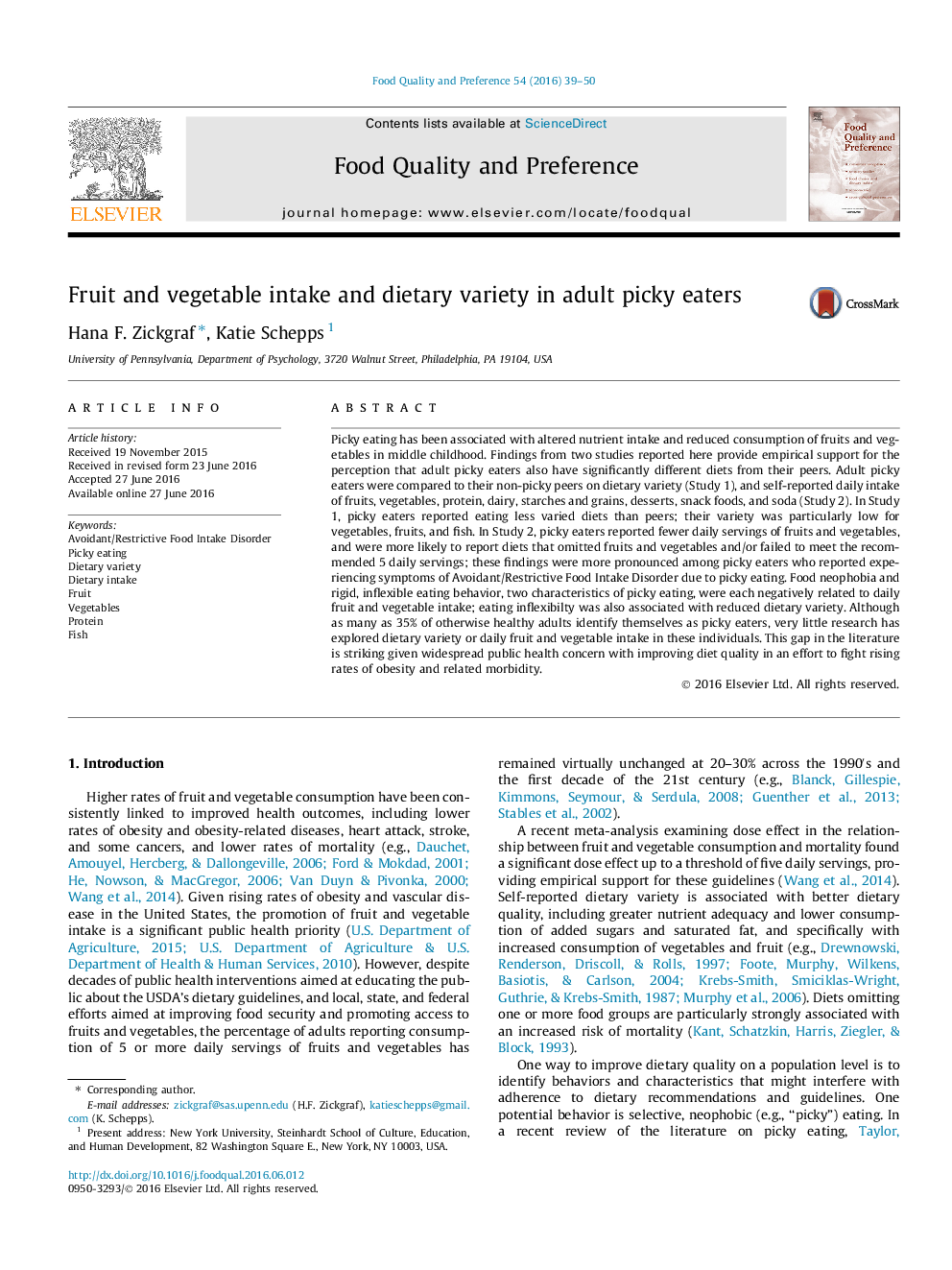| Article ID | Journal | Published Year | Pages | File Type |
|---|---|---|---|---|
| 6261138 | Food Quality and Preference | 2016 | 12 Pages |
â¢Adults who self-identify as “picky eaters” report lower dietary variety.â¢Largest differences in variety between picky and non-picky were for fruits and vegetables.â¢Picky eaters are more likely to omit fruits and vegetables from their diets completely.â¢Picky eaters are less likely to eat 5 daily servings of fruits and vegetables.â¢Daily fruit/vegetable intake and variety are correlated with food rigidity and neophobia.
Picky eating has been associated with altered nutrient intake and reduced consumption of fruits and vegetables in middle childhood. Findings from two studies reported here provide empirical support for the perception that adult picky eaters also have significantly different diets from their peers. Adult picky eaters were compared to their non-picky peers on dietary variety (Study 1), and self-reported daily intake of fruits, vegetables, protein, dairy, starches and grains, desserts, snack foods, and soda (Study 2). In Study 1, picky eaters reported eating less varied diets than peers; their variety was particularly low for vegetables, fruits, and fish. In Study 2, picky eaters reported fewer daily servings of fruits and vegetables, and were more likely to report diets that omitted fruits and vegetables and/or failed to meet the recommended 5 daily servings; these findings were more pronounced among picky eaters who reported experiencing symptoms of Avoidant/Restrictive Food Intake Disorder due to picky eating. Food neophobia and rigid, inflexible eating behavior, two characteristics of picky eating, were each negatively related to daily fruit and vegetable intake; eating inflexibilty was also associated with reduced dietary variety. Although as many as 35% of otherwise healthy adults identify themselves as picky eaters, very little research has explored dietary variety or daily fruit and vegetable intake in these individuals. This gap in the literature is striking given widespread public health concern with improving diet quality in an effort to fight rising rates of obesity and related morbidity.
